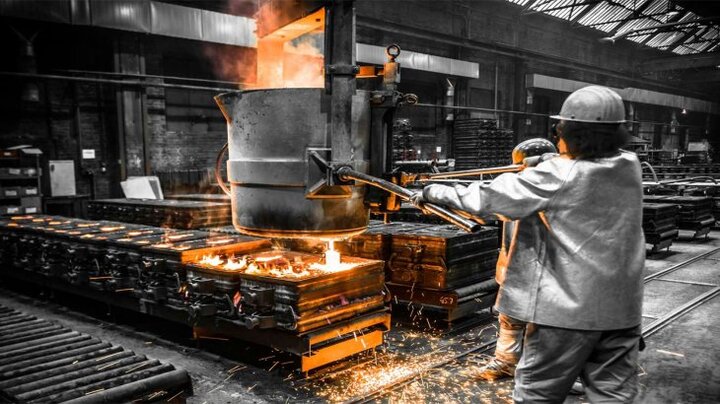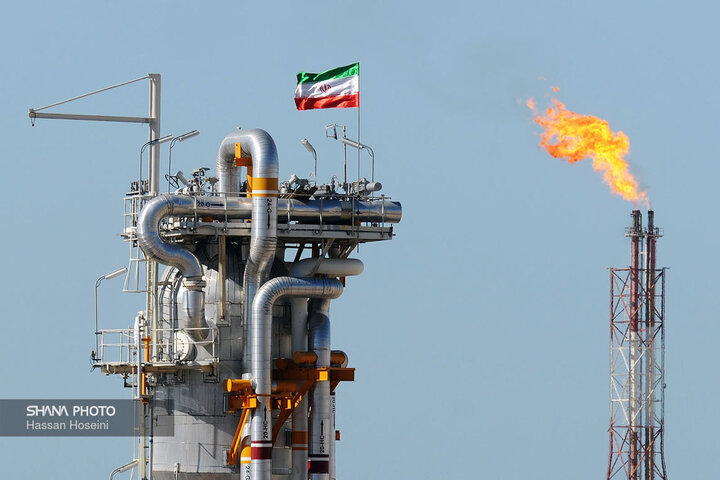Iran's cement production in the late Pahlavi era was 7.7 million metric tons (mt) annually, which reached 17 million mt in the 1980s.
However, the peak of development of this industry began in the mid-80s and the country's production hit a record 70 million mt in 1993.
According to the latest figure, there are nearly 76 manufacturing companies in Iran in the field of cement and clinker with a capacity of about 88 million mt.
All the raw materials of the cement industry are supplied from inside the country.
The Islamic Republic was ranked 4th in 2012 and 6th in the world in 2015 in the cement industry.
Currently, Iran stands at 8th in the world in this regard. Among the countries in the region, only Turkey ranks higher than Iran.
The global production of cement was 4.1 billion mt in 2022. China continues to lead the production of 2.1 billion mt of cement, ranking first in the world.
India ranked second with 370 million mt and Vietnam ranked third with 120 million mt in global cement production in 2022.
The US, with a production of 95 million mt, and Turkey, with a production of 85 million mt could take fourth and fifth place in this regard.
With the production of 64 million mt, Brazil comes sixth while Indonesia, with 64 million mt, stands in seventh position.

The steel industry can be considered one of the important evaluation criteria of the economy in every country so even per capita steel consumption is regarded as an indicator of to what extent a country is industrial.
According to the World Steel Assembly, Iran's annual production of crude steel before the Revolution was 1.8 million mt, but this reached 29 million mt in 2020.
Iran's crude steel production has more than increased by 17 times in the past 40 years. Iran's share of global crude steel production before the Revolution was 0.4%, but now it has reached 1.4%.
The petrochemical industry is one of the industries that is also the focus of great powers.
The European Union and the US had the highest sales of petrochemical products in 2019, respectively.
Today, emerging Asian countries rank in the top 10 in terms of petrochemical sales alongside EU member states, the US and Japan. Iran's petrochemical production before the Revolution accounted for 1.6 million mt annually.
After the victory of the Islamic Revolution, the petrochemical industry was taken into account.
The imposed war impeded the development of Iran's petrochemical industry.
There are currently 70 petrochemical complexes operating in the Iranian petrochemical industry.
Currently, Iran enjoys 27% of the petrochemical production capacity in the West Asian region.
Iran's petrochemical industry is export-oriented and has a 21% share in the country's non-oil exports.
Oil production in the petrochemical industry is one of the ways to neutralize the American sanctions.
Given the maximum pressure policy that the US government is pursuing against the Islamic Republic of Iran and has affected Iran's oil sector in particular, the Islamic Republic of Iran has counted on the petrochemical industry.
The energy sector, especially oil and gas, is the most significant part of the Iranian economy because the bulk of the country's revenues come from this sector.
Iran stands in fourth place following Venezuela, Saudi Arabia, and Canada.
The Islamic Republic continues to hold the second largest proven gas reserves in the world, and Iran's gas reserves were at the level of 33.98 trillion cubic meters in 2022.
Although economic issues are the most important challenge facing the Islamic Republic of Iran over the past 45 years, valuable measures have been taken in various economic fields, so that Iran enjoys high global rankings in some industries.
Undoubtedly, if it had not been for the arbitrary sanctions of the Western powers, particularly the US, the Islamic Republic would have had a far better record in the economic sphere.
MNA
